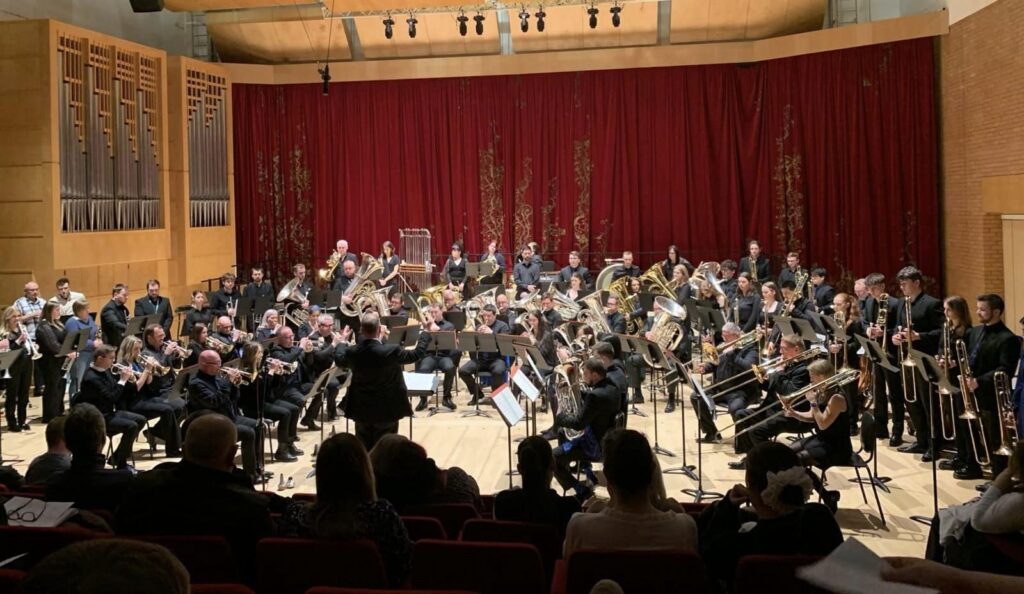Best Music Schools Europe Taught in English
Europe well known as a cultural hub that has produced some of the world’s most iconic musicians, composers, and performers. With a rich history and tradition of music education, European schools have become highly sought-after institutions for aspiring musicians from around the globe. These schools not only offer world-class instruction but also provide students with invaluable resources, professional connections, and opportunities to develop their skills, creativity, and passion for the arts.
In order to help students make informed decisions about their music education journey, it’s essential to gain an understanding of the European music education landscape and how it caters to diverse needs and interests. Top-ranked music schools in Europe cover a wide range of specialized areas of study, offering well-rounded programs and highly distinguished faculty and alumni, often with strong ties to the music industry. These institutions also emphasize international collaboration and a global perspective, while providing financial aid and scholarships to maximize access for talented students from all walks of life.
Key Takeaways
- Europe’s top music schools offer world-class education and resources for aspiring musicians that you generally can’t find anywhere else.
- Specialized programs and distinguished faculty cater to diverse set of interests.
- These universities place a strong focus on international collaboration and industry relationships.
Overview of the European Music Education Landscape

The European music education landscape boasts a rich history and a wide variety of prestigious music schools. These institutions are known for offering high-quality education, fostering the development of top-notch musicians, and promoting cultural exchange through music.
Comparing US and European Music Schools
While you may have heard of many top-tier music schools in the United States, European music schools often have a stronger focus on classical training and the historical context surrounding the art form. For students interested in pursuing a music degree in Europe, they can expect to study various periods, styles, and techniques of music composition, performance, and theory.
- Curriculum: European music schools generally emphasize a more comprehensive and historical approach to music education, while U.S. schools may offer a diverse range of contemporary music styles and programs.
- Tuition Costs: European schools generally have significantly lower tuition fees compared to their American counterparts, though costs can vary widely depending on the country and institution.
- Cultural Experiences: Studying music in Europe will expose you to a diverse array of cultural opportunities, including historical performances, festivals, and access to world-renowned music venues.
Significance of Music Schools in Europe
Europe is home to many iconic music schools that have contributed significantly to the global music scene throughout history. The following are some of our picks for the best music schools in Europe, recognized for their excellence in teaching and producing renowned musicians:
1. Royal Academy of Music
This UK-based university is world renowned for its nearly 200 years of rich history and offers various degrees, including bachelor’s, master’s, and professional diplomas. It has a wide range of music programs, focusing on both performance and composition, and features a weal.
2. University of Music and Performing Arts
The University of Music and Performing Arts located in Austria has a long-standing history, with renowned composers like Mozart and Beethoven having studied in Vienna. It offers bachelor’s, master’s, Ph.D., and diploma studies in music, with a favorable student-instructor ratio, contributing to high-quality education. It also offers a comprehensive selection of music degrees ranging from classical to electronic music, as well as drama and film studies.
3. Royal Conservatoire of Scotland

Offering bachelor’s, master’s, and Ph.D. programs, this conservatoire in Scotland is known for its world-class facilities and faculty, providing an exceptional education for aspiring musicians.
4. Royal College of Music

The Royal College of Music in the UK offers degree programs in music performance, composition, conducting, and musicology. It has an excellent reputation for teaching and research, with a faculty of leading musicians and scholars.
5. Leiden University

Leiden University has a broad range of bachelor’s programs, including music-related studies, with a focus on quality education and a unique student experience in the cities of Leiden and The Hague. The university offers a diverse selection of programs, with over 50 bachelor’s degrees across various fields.
7. Stockholm University
This Swedish university offers bachelor’s degrees in various fields, including Fine Arts and Music. It provides 15 bachelor’s degree programs for English speakers, with a strong focus on Earth Science, Economics, and International Business.
7. Vrije Universiteit Brussel (VUB)
Located in Brussels, Belgium, VUB offers a variety of bachelor’s degree programs in English. Nearly a quarter of its students come from outside the country, indicating a strong international focus.
8. Central European University (CEU)
Located in Vienna, Austria, CEU offers bachelor’s degrees in English, with a multidisciplinary approach and a strong focus on international students.
By offering high-quality education and fostering exceptional talent, the significance of music schools in Europe cannot be underestimated. Studying music in this culturally and historically rich region provides students with unique opportunities to broaden their perspectives and advance their careers in the competitive world of music and art.
Specialized Areas of Study

Composition and Conducting
Many music schools in Europe offer comprehensive degrees in both composition and conducting. Students pursuing these degrees often focus on developing their own unique style as composers while gaining proficiency in various musical forms, such as classical, jazz, and contemporary music. Additionally, they acquire the necessary conducting skills that can lead to careers in orchestras or ensembles. Programs like the one at Royal College of Music in London have a strong emphasis on contemporary composition, ensuring that graduates are well-equipped to navigate the modern music scene.
Musicology and Ethnomusicology
Musicology and ethnomusicology are two interrelated fields of study that delve into the history, theory, and cultural aspects of music. Programs in these areas help students develop a deep understanding of music’s role in society, its historical development, and its connection to various cultures. A reputable institution offering degrees in this discipline is the Sibelius Academy in Helsinki, where students can explore the in-depth history of music as well as investigate music from different regions, such as Western Europe, Africa, and Asia.
FREE INSIDER’S GUIDE

Top 5 English-Taught Colleges in Europe
Kickstart you education abroad with a powerful degree taught entirely in English, all without taking on any student loans!
Performance and Contemporary Music
The focus on performance in music schools throughout Europe encompasses a wide range of genres, including classical, contemporary music, and jazz. Degrees in music performance give students the opportunity to hone their skills in their chosen instrument or voice, while also broadening their knowledge of various musical styles and repertoire. European schools that specialize in contemporary music, like the University of Arts in Berlin, provide an expansive curriculum for composers and performers alike and help foster strong connections with the wider contemporary music scene.
Additionally, many institutions offer specialized programs for jazz musicians, combining performance and improvisation skills with a solid foundation in music theory, history, and composition. For instance, the Amsterdam Conservatory offers a renowned jazz program that provides students with personalized guidance and opportunities for collaboration.
By offering a diverse array of specialized areas of study, Europe’s top music schools cater to the unique needs and interests of their students, ultimately preparing them for successful careers in the world of music.

Key Considerations for Aspiring Musicians
Navigating Admission Requirements
When looking for the best music schools in Europe, aspiring musicians should consider the admission requirements for each institution. These requirements may include a demonstration of passion for music, audition performances, and transcripts from prior education levels. Typically, music schools offer various degree levels, such as a bachelor’s and master’s in music, with each having distinct admission prerequisites.
In some cases, music schools may require prospective students to have completed certain courses or have specific qualifications. It is recommended for aspiring musicians to research the entry requirements of each institution they are considering and ensure they meet or exceed those standards before attempting to enroll. Here at Beyond The States we can do the research for you and curate a personalized Best Fit List of the top matching music programs across Europe that meet your needs. Our dedicated team of student advisors has helped thousands of students just like you with our various resources and courses to help you have a smooth transition.
Cultural and Artistic Opportunities
When selecting a music school in Europe, it is essential to consider the location and the available cultural and artistic opportunities in the area. Europe boasts a diverse mix of cultures, languages, and artistic disciplines that can influence and enrich a musician’s growth. Students should explore the local music scene, surrounding theatres, concert halls, and venues to engage in different musical genres and traditions.
Moreover, getting your degree in Europe can provide a unique and valuable perspective on the world of music. This exposure to various cultures can help musicians broaden their influences, develop their style, and ultimately improve their overall musicianship.
Distinguished Faculty and Alumni
When discussing some of the best music schools in Europe, their distinguished faculty and alumni are often at the forefront of the discussion. Renowned music schools not only boast experienced and successful faculty members but also produce alumni with impressive professional achievements in the world of music.
The Royal College of Music in London, for example, has a long history of producing talented musicians with the help of its exceptional staff. Some of its esteemed faculty members, past and present, include prominent names in European classical music. Graduates from this prestigious institution have gone on to lead successful careers in various music-related fields, contributing significantly to the industry.
Similarly, the Paris Conservatoire has earned an international reputation as one of the most illustrious music institutions in Europe, with a strong emphasis on education and research. The faculty consists of world-class musicians, composers, and musicologists, who are dedicated to shaping the next generation of artists. The conservatoire’s alumni have made significant contributions to the music world through their performances, compositions, and research.
Another distinguished music school in Europe is the Universität der Künste Berlin. The university is known for fostering interdisciplinary studies in the arts, including music, with a focus on both classical and contemporary genres. Its faculty is comprised of accomplished artists, who provide innovative approaches to music education, while the alumni maintain a strong presence in the professional music scene.
In conclusion, the best music schools in Europe typically feature distinguished faculty and alumni that contribute significantly to the world of music. These institutions offer exceptional education, extensive research opportunities, and continuous support for their students, ultimately shaping the future of the music industry.
Facilities and Learning Resources
Libraries and Concert Halls
Europe’s best music schools boast impressive libraries and concert halls that cater to the diverse needs of their students. The Guildhall School of Music and Drama, for example, is home to an extensive collection of music scores, books, and journals that cater to the academic needs of students and researchers alike. Libraries in these music schools are typically well-equipped with listening rooms and study spaces, providing ample opportunities for students to immerse themselves in their studies.
Many renowned music schools in Europe also have state-of-the-art concert halls that provide an excellent platform for students to showcase their talents. These performance venues often have cutting-edge acoustics and seating arrangements, making them ideal for hosting various musical events, such as chamber music, orchestral performances, and operas. These concert halls are not only pivotal to the cultural life of the schools but also serve as important performance experiences for students.
Cutting-Edge Recording Studios
In addition to libraries and concert halls, Europe’s best music schools often feature top-of-the-line recording studios. These facilities provide a professional environment for students to explore various aspects of modern music production, such as recording, mixing, and mastering. Equipped with high-quality microphones, preamps, digital audio workstations, and a wide range of software plugins, these recording studios offer a wide range of audio production possibilities.
Furthermore, these music schools provide students with access to experienced engineers and producers, who often contribute to the development of the students’ practical skills through hands-on workshops and masterclasses. Students can also collaborate with their fellow musicians in the recording studios, enabling them to gain valuable industry insights and hone their skills in a collaborative environment.
In summary, the best music schools in Europe provide world-class facilities and learning resources, including well-stocked libraries, state-of-the-art concert halls, and cutting-edge recording studios. These top-tier institutions foster a comprehensive learning experience for aspiring musicians, offering them the necessary tools and opportunities to excel in their chosen fields.
Financial Aid and Scholarships
Financial assistance plays a significant role in helping students pursue their dreams at some of the best music schools in Europe. Various forms of financial aid, such as scholarships, fellowships, and grants are available for eligible students.
Many European music schools offer scholarships to attract talented students and support their education. Scholarships can be merit-based, need-based, or a combination of both. Some music schools even provide child labor “scholarships,” aimed at helping young musicians from underprivileged backgrounds. This type of scholarship assists students on New York’s Lower East Side, offering them a chance to study music at no cost.
Study opportunities in European music schools are enriched by collaborations with local communities, as well as national and international organizations. Such partnerships often result in additional financial aid options for students. Moreover, many reputable music schools in Europe provide access to world-class facilities and learning resources that help students excel in their chosen fields.
To enhance their chances of receiving financial aid, students are encouraged to explore various sources, such as government-sponsored programs, private organizations, and the music schools themselves. Applying for site memberships related to music organizations can also increase the likelihood of securing scholarships and networking opportunities.
Overall, it’s vital for aspiring musicians to thoroughly research the financial aid and scholarship options available at their preferred European music schools. Such assistance can tremendously impact their ability to study, refine their talents, and ultimately achieve success in the competitive music industry.
What are your waiting for?
Our Database Has Everything You Need To Find Your Dream School Today
3,400+
8,200+
570+
870
$332,948
Global Perspective and International Collaboration
European Partnerships and Exchange Programs
Music schools in Europe are known for fostering a strong culture of interdisciplinary collaboration and international exchange programs. These partnerships allow students to broaden their knowledge and experience by working with musicians and educators from different countries and cultural backgrounds.
A common approach among European music schools is to participate in formalized international cooperation. This collaboration benefits not only the students but also the music schools and their faculty by sharing best practices, resources, and innovative teaching methods. Some examples of such partnerships include:
- Erasmus+: A European Union initiative that supports international collaborations and mobility of students, staff, and teachers across Europe.
- Bilateral partnerships: European music schools often establish direct partnerships with institutions in other countries, offering joint programs, dual degrees, or student exchange opportunities.
Intercontinental Outreach
Beyond Europe, music schools also engage in intercontinental collaborations, expanding their global outreach and fostering a diverse learning environment. Music schools in Europe have formed connections with countries like India, sharing their expertise with emerging artists and educators from different cultural backgrounds.
A notable example of intercontinental outreach is the involvement of European music schools in the International Society for Music Education (ISME). This organization aims to promote music education worldwide and encourages cooperation among its members, enabling European music schools to contribute their expertise and collaborate with their counterparts across the globe.
Through these international partnerships and collaborations, students at music schools in Europe can broaden their horizons and gain invaluable insights into the diversity of musical traditions and pedagogies worldwide. As a result, these institutions stand out as exemplary models of global perspective and international cooperation in the field of music education.
Career Opportunities in the Music Industry
The music industry offers a wide range of career opportunities for individuals looking to succeed in various fields, such as performance, composition, and education. One of the essential steps to starting a successful career in the music industry is by enrolling in a reputable music school in Europe.
Graduates from top music schools can find numerous paths to showcase and enhance their skills. They can work as performers in orchestras, bands, or as solo artists. European music schools provide students with a solid foundation in performance skills, helping them excel in their chosen field. For instance, the Dutch and British music industries serve as excellent platforms for early-career musicians.
For those more interested in creating their music, composition provides exciting career opportunities. As a composer, individuals can write music for films, advertisements, video games, theater productions, or even create original works for other artists to perform. Many music schools in Europe cater to students looking to pursue composition as their primary focus, providing in-depth education in essential techniques and industry knowledge.
Besides performance and composition, music education plays a vital role in the career trajectory of many music graduates. According to a study on music graduate employment, the education sector offers various job opportunities to share one’s passion for music with younger generations. Music schools and academies in Europe can equip graduates with the necessary pedagogical skills to work as teachers, tutors, or mentors in private institutions or public schools.
Furthermore, there are additional career options for music graduates in the fields of:
- Music production
- Audio engineering
- Musicology
- A&R (Artists and repertoire)
- Music therapy
- Music journalism
In conclusion, the music industry in Europe offers various opportunities for music school graduates. Aspiring performers, composers, and educators can all find their niche and thrive in their chosen path. Enrolling at a top European music school is an excellent first step in launching a successful career in the dynamic world of music.
Cultural Significance of Music in Europe
Influence of Historical European Composers
Europe has a long history of being home to some of the world’s most renowned composers such as Beethoven, Mozart, and Franz Liszt. These composers brought about profound impacts on the development of classical music globally. For example, the Liszt Academy of Music in Hungary has been a leading institution in cultivating musical talents and preserving the European classical music legacy.
Countries in Europe, such as France, Germany, Italy, and Austria, have rich musical heritages. National music academies and schools have been established in these countries to ensure the continuation of musical traditions and the development of new musical talents. For instance, renowned institutions like the Sibelius Academy in Finland and the Milan Conservatory in Italy have produced numerous great musicians and composers.
Contemporary Music Scenes across Europe
Apart from its classic music history, Europe boasts vibrant contemporary music scenes across several of its countries, including Spain, Netherlands, Norway, Denmark, Sweden, Belgium, Ireland, and Scotland. In these nations, both traditional music and modern genres, such as rock, pop, and electronic dance music, continue to create unique and diverse soundscapes.
The music education systems in various European countries have also adapted to these modern trends. Music schools in cities like Glasgow, England, and Milan are gradually incorporating elements of contemporary music into their pedagogy, alongside classical music. By embracing these changes, European music schools have been consistently pushing the boundaries of musical creativity.
In conclusion, Europe has always been of great importance in the world of music. From historical composers such as Mozart and Beethoven to the contemporary music scenes thriving in numerous countries across the continent, Europe continues to shape the global musical landscape, and its prestigious music schools remain at the forefront of artistic and cultural development.
Frequently Asked Questions
What are the top music schools in Europe for undergraduate programs?
There are several high-quality music schools in Europe offering outstanding undergraduate programs. Some of the top institutions include the Royal College of Music in London, the Paris Conservatory, the Berlin University of the Arts, and the Sibelius Academy in Helsinki. Each of these schools is renowned for their excellent faculty, facilities, and academic programs.
Which European music schools are best for international students?
Many European music schools are welcoming to international students, but there can be some challenges in terms of language and cultural adjustment. It is essential to research each school’s language requirements, student support services, and international community to find the best fit. Some schools, like the Royal College of Music in London, are particularly well-known for their diverse student body and accommodating environment.
How do the best European music schools compare globally?
European music schools consistently rank among the top institutions in the world for their academic quality, facilities, and faculty. Many European schools have a long history and tradition of excellence in music education, and their graduates often go on to have successful careers in various fields of music.
What factors should be considered when choosing a music school in Europe?
When choosing a music school in Europe, consider factors such as tuition fees, location, language requirements, program offerings, faculty expertise, facilities, and the overall reputation of the institution. It’s also essential to visit schools and observe classes, concerts, and other campus events to get a sense of each school’s culture and community.
In which European countries are the most prestigious music institutions located?
Some of the most prestigious music institutions in Europe are located in the United Kingdom, France, Germany, and Finland. However, many other European countries, like Italy, Austria, Switzerland, and the Netherlands, also have excellent music schools worth considering.
What opportunities do the top-rated European music schools offer for advanced study?
Top-rated European music schools often offer various opportunities for advanced study, including master’s and doctoral programs, postgraduate diplomas, and artist residencies. These programs typically provide in-depth training in specific fields, such as performance, composition, or musicology, and may include collaboration with other institutions, orchestras, or professional organizations.

















